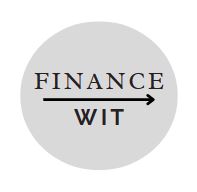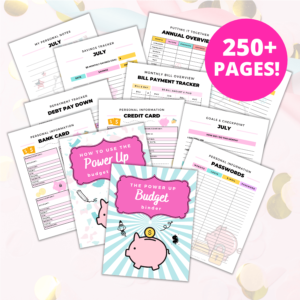
Have you ever felt like debt is a never-ending shadow, following you everywhere you go?
Debt can feel like a heavy burden, a weight that follows you everywhere, impacting your mental health, relationships, and overall quality of life.
Did you know that as of 2023, American household debt reached a staggering $16.5 trillion?
That is an incredible number, and it shows just how many people are struggling under the burden of debt.
I’ve been there, and I know how paralyzing it can feel. I remember the sleepless nights and constant worry, so you are not alone.
In this blog post, I am going to walk you through the process of negotiating debt settlement.
By the end of this guide, you will have a clear roadmap to help you reduce your debt and start reclaiming your financial freedom.
6 WAYS TO NEGOTIATE DEBT SETTLEMENT
1. UNDERSTANDING DEBT SETTLEMENT
Before diving into the negotiation process, it is important to understand what debt settlement is.
Essentially, debt settlement involves negotiating with your creditors to pay a lump sum that is less than the total amount you owe.
This can be a viable option for those with significant debt who are struggling to make minimum payments.
Unlike debt consolidation, which combines all your debts into a single loan, or bankruptcy, which can have long-term negative impacts on your credit, debt settlement offers a middle ground.
It allows you to settle your debts for less than you owe, helping you to regain control of your finances without the long-term repercussions of bankruptcy.
Pros and Cons of Debt Settlement
Debt settlement has its advantages and disadvantages, and it is crucial to weigh these before deciding if it is the right path for you.
Pros:
Debt relief: provides a path to becoming debt-free faster than making minimum payments
Avoid bankruptcy: helps you avoid the long-term consequences of bankruptcy on your credit report.
Financial relief: settling your debt can relieve the constant stress and anxiety associated with overwhelming debt.
Cons:
Credit impact: debt settlement can negatively affect your credit score, as it often involves stopping payments during negotiations.
Tax implications: the forgiven debt may be considered taxable income by the IRS.
Potential for additional fees: some creditors may charge fees for settling your debt.
Fees and scams: some debt settlement companies charge high fees, and there are many scams in the industry.
No guarantees: creditors are not obligated to settle, and negotiations may not always be successful.
2. PREPARING FOR DEBT NEGOTIATION
Before you start the negotiation process, it is essential to prepare thoroughly. This involves assessing your financial situation, understanding your rights, and researching your options.
Assess Your Financial Situation
Start by getting a clear picture of your total debt, income, and expenses.
This will help you determine how much you can realistically offer to settle your debt and to ensure that you don’t overcommit yourself financially.
Make a list of all your debts, including the creditors’ name, amount owed, due dates and interest rates.
Then, create a budget that outlines your monthly income and essential expenses like rent, utilities, groceries, and discretionary spending.
Know Your Rights

Familiarize yourself with consumer protection laws related to debt collection.
The Fair Debt Collection Practices Act (FDCPA) is designed to protect consumers from abusive or deceptive practices by debt collectors.
For example, debt collectors cannot call you before 8 a.m. or after 9 p.m., and they must cease communication if you request it in writing.
Knowing your rights can give you confidence, ensure you are treated and help you spot any illegal practices.
Research Debt Settlement Companies
If you decide to use a debt settlement company, it is vital to choose a reputable one.
Look for companies that are accredited by organizations like the American Fair Credit Council (AFCC) or have good reviews with the Better Business Bureau (BBB) or from other customers.
Be clear on what fees the company charges and when they are due. Legitimate companies typically don’t charge upfront fees.
Avoid companies that demand upfront fees or make promises that seem too good to be true.
3. STEPS TO NEGOTIATE DEBT SETTLEMENT
Now that you are prepared, let’s dive into the actual steps of negotiating a debt settlement.
This process requires persistence, patience, and a strategic approach.
Contacting Your Creditor
Initiating contact with your creditor is the first step. This can be done via phone or in writing.
Here’s a tip: start with a letter or email. It allows you to clearly articulate your situation and proposal without the pressure of an immediate response.
Explain that you are experiencing financial hardship and are unable to pay the full amount.
In your initial communication, be honest about your financial hardship and express your desire to settle the debt.
Let them know you are committed to settling your debt but need their help to make it happen. Provide details if necessary, but keep it concise.
Approach the conversation calmly and professionally. Being confrontational or emotional can hinder the negotiation process.
Sample Script: “Hello, my name is (your name). I’m calling to discuss my account (account number). Due to (briefly explain your financial hardship), I’m struggling to keep up with my payments. I’d like to explore options for settling my debt and hope we can find a mutually agreeable solution.”
Proposing a Settlement Amount

Determining a reasonable settlement offer is crucial. Typically, creditors may accept 40-60% of the total debt owed.
Start by offering 30% of your outstanding balance. Creditors may counteroffer, so be prepared to negotiate.
Emphasize your financial difficulties and explain why you can’t pay the full amount.
This helps creditors understand your situation and may make them more willing to accept your offer.
Negotiating Terms
Negotiation can be the most challenging part of the process. Here are some tips to help you navigate it:
Aim for lump-sum payment: Creditors are more likely to accept a settlement if you can pay the agreed amount in a lump sum rather than installments.
Get creative: if a lump-sum payment isn’t possible, propose a short-term payment plan. This shows your willingness to resolve the debt.
Stay calm and professional: keep your emotions in check and maintain a respectful tone.
Be persistent: Creditors may not accept your first offer. Be prepared to make counteroffers and stay persistent.
Highlight your financial hardship: continuously emphasize your financial difficulties, inability to pay the full amount and stick to your budget.
Use silence as a tool: sometimes, pausing can prompt creditors to fill the silence with concessions.
Remember, it is in the creditor’s best interest to recover some of the debt rather than none.
Getting the Agreement in Writing

Once you reach an agreement, please get everything in writing.
This should include the agreed-upon settlement amount, payment terms, payment method and due date, and confirmation that the debt will be reported as “settled” or “paid in full” once the settlement is made.
Review the agreement carefully and make sure all the details are correct before making any payments.
Having a written agreement protects you in case there are any future disputes.
4. TIPS FOR SUCCESSFUL NEGOTIATION
Negotiating debt settlement can be a long and arduous process, but these tips can increase your chances of success.
Be Persistent and Patient
Debt settlement negotiations can take time. It is important to be persistent and not get discouraged if the first few calls do not yield results or your initial offers are rejected.
Patience can pay off in the long run.
Keep following up with your creditors and don’t give up even if you do not get the desired outcome immediately.
Stay Calm and Professional
Debt negotiations can be stressful and easy to get emotional when discussing your financial struggles, but staying calm and professional can make a big difference.
Keep your emotions in check and focus on finding a solution.
Approach each conversation with a clear mind and a respectful attitude.
This can help build rapport with your creditors and make them more willing to work with you.
Keep Detailed Records
Maintain detailed records of all communications with your creditors.
This includes notes from phone calls, emails, copies of letters, and any written agreements.
Document every conversation, including dates, names, and details discussed.
Documenting your interactions will help you stay organized and provide evidence if any disputes arise.
Know When to Seek Help
If you are feeling overwhelmed or if negotiations are not progressing, it might be time to seek professional help.
A credit counselor or a reputable debt settlement company can provide guidance, support and negotiate on your behalf. They have experience and can often negotiate better terms.
5. ALTERNATIVES TO DEBT SETTLEMENT
Debt settlement is not the only option for dealing with debt. Here are a few alternatives that might be worth considering:
Debt Management Plans
Debt management plans (DMPs) involve working with a credit counseling agency to create a plan for repaying your debt over time.
A credit counselor will help you create a budget and negotiate with your creditors to reduce interest rates and waive fees, making it easier to pay off your debt.
You will make a single monthly payment to the credit counseling agency, which will then distribute the funds to your creditors.
DMPs can help you pay off your debt in a more manageable way, although they may take longer than a settlement.
Credit Counseling
Credit counseling services offer financial education, budgeting assistance, and debt management plans.
A credit counselor will review your financial situation, provide personalized advice and help you develop a budget.
They’ll discuss various debt repayment options and help you choose the best one for your situation.
Credit counseling is often free or low-cost, making it an accessible option for many people.
Bankruptcy

Bankruptcy should be a last resort due to its long-term impact on your credit.
Bankruptcy can discharge certain debts, but it has a significant impact on your credit and can remain on your credit report for up to 10 years.
While bankruptcy may be the best option to discharge unmanageable debt and can provide a fresh start, it is important to consider the long-term consequences.
6. MAINTAINING FINANCIAL HEALTH POST-SETTLEMENT
Settling your debt is a significant milestone, but it’s just the beginning of your journey to financial health.
Maintaining financial health is crucial to avoid falling back into debt.
Here are some tips to help you maintain and improve your financial situation after settling your debt.
Building an Emergency Fund
An emergency fund is essential for preventing future financial crises.
Aim to save at least three to six months’ worth of living expenses.
Look for ways to cut unnecessary expenses and redirect those funds to your emergency fund.
Set up automatic transfers to your savings account to ensure consistent contributions.
Start small and build up your fund over time.
Budgeting Tips
Creating and sticking to a budget is key to managing your finances.
Focus on necessities like housing, utilities, and groceries before discretionary spending.
Track your income and expenses and allocate funds for savings and debt repayment.
Use budgeting tools and apps to help you stay on track. I highly recommend the Power Up Budget Binder.
Review your budget regularly and adjust as necessary to stay on track.
Credit Repair
Debt settlement can impact your credit score, but there are steps you can take to rebuild it.
Make all your payments on time, reduce your debt-to-income ratio, and avoid taking on new debt.
Regularly review your credit report for errors and dispute any inaccuracies.
Consider using a secured credit card to help rebuild your credit.
Over time, your score will improve.
CONCLUSION ON HOW TO NEGOTIATE DEBT SETTLEMENT
Negotiating debt settlement is a powerful tool to regain control of your finances.
It requires preparation, patience, and persistence, but the rewards are worth it.
By understanding the process, preparing thoroughly, and following the steps outlined in this post, you can successfully negotiate your debt settlement and build a brighter financial future.
Remember, you are not alone in this journey. Many have successfully navigated the challenges of debt settlement, and with persistence and determination, you can too.
You have the power to overcome your debt and achieve financial freedom.
Stay motivated and keep pushing forward—you’ve got this!
I hope you found this article helpful and insightful. Kindly share and follow me on Pinterest and LinkedIn for the latest posts.
 ABOUT CHRISTY MICHAEL
ABOUT CHRISTY MICHAEL
I am passionate about finding creative ways to pay off debts, make more money, and save more money; and helping people achieve their financial goals and ultimately, financial freedom. My journey of overcoming consumer debts and achieving financial independence inspired me to start FinanceWit.org (with no knowledge or experience with blogs). FinanceWit is a personal finance and money matters blog, where I share a treasure trove of tips, tricks, and innovative strategies to fast-track your journey to debt freedom. Want to dive deeper into my story? Read more about me here.

